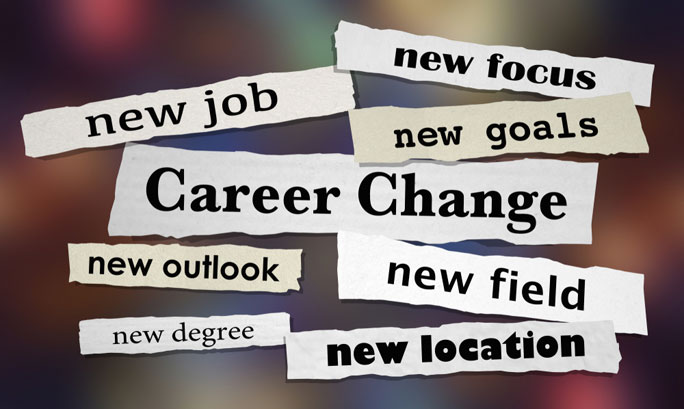
One of the most common reasons why candidates seek to switch law firms is dissatisfaction with their current firm. Whether it be salary, opportunity for future advancement and promotion, lack of work, or a bad working environment due to difficult supervisors or colleagues, there are a whole host of reasons many attorneys want to seek out the proverbial greener pastures within the law firm world.
The vast majority of attorneys who have worked for firms from the smallest boutique to the largest international powerhouse firm has likely experienced at least one of the factors listed above, if not many of the others that can lead to dissatisfaction with one's firm. That being said, however, not every attorney will be understanding or sympathetic to the difficulties those factors can cause.
In fact, it is often the case that many attorneys who have overcome those factors through diligence, hard work, luck, perseverance, politicking, building their own book of business, and other notable accomplishments to become partner believe that any attorney they hire should have a similar drive and resolve to succeed in their career, even in the face of tremendous adversity, the worst work environment, or any other barriers or pitfalls that might impact a more junior attorney.
Being partner involves not only overcoming many of these factors throughout the course of developing a career, but a whole host of additional stresses and problems, such as building and maintaining a client base, pitching business, firm management and marketing, and supervising and training more junior attorneys while handling an active caseload. So while many of us wish that partners were more sympathetic to the plight of the younger attorney who is seeking to move due to being stuck in a difficult, if not intractable, work situation, it is certainly understandable why this may not be the case.
This is a long introduction, and hopefully a partial explanation, of the ultimate topic of this column, which is how to deal with the question of why you are seeking to leave your current firm when the short and sweet answer is "my current firm/partner/work situation is terrible."
For fairly obvious reasons, giving such a straightforward and honest answer is both impolitic and generally taboo in an interview setting. Bad-mouthing your current employer, even if completely justified, reflects poorly on you as a candidate. A candidate who says negative things about their current firm or partner risks being perceived as: someone with a negative attitude, someone who is difficult to work with because they are unwilling to buckle down or compromise in the face of adversity, someone who is difficult to manage, someone who may speak negatively about the firm they are interviewing with in the future, or someone who comes across as a victim rather than as a successful attorney in charge of his or her career.
On the other hand, if you give no good reason as to why you are seeking to leave your current firm, a prospective employer may not see the requisite enthusiasm or motivation to make the move. Instead, you must look to balance an honest answer with a more subtle and positive way of framing the situation.
I find the following approach to be the most helpful and successful in terms of framing an answer to the question of "why are you looking to leave your current firm" when the underlying reason is dissatisfaction with the firm or your current partners:
First, you should start out by mentioning what is positive about your experience with your current firm, whether it is solid training and work experience, the opportunity to have worked on sophisticated or interesting matters, having been challenged to develop a skill set, getting along with coworkers and staff (hopefully you get along with at least somebody there!), etc. This is beneficial, because it will serve to demonstrate that you are not simply a negative person or complainer who will seek to find the fault in every situation.
Second, it is good to acknowledge the taboo of speaking ill of your current (or recent, if you left or were laid off) employer. Acknowledging that you are aware of this taboo shows that you at least have the social skills and judgment to handle things with politic and grace. This can be accomplished as simply as stating something like "while there are things I do like about my current job, and it is not my intention to denigrate my current employer since that is bad form, it is obvious that I do not believe it is the right long-term place for my career, otherwise I would not be here interviewing with you and exploring my lateral options."
- See Top Ten Interview Questions for more information
Again, you are framing an honest answer to the question in a way that demonstrates tact and thoughtfulness.
You can then move on to discussing your issues ("concerns" is a better word to use), although here again you have to be careful. Saying that you are overworked is not a good concern, for instance, because it implies to your interviewer that you are not willing to be a hard worker.
Better concerns are things like a top-heavy structure leaving less room to make partner or take on more responsibility on future matters (although in this example or any other, make sure a top-heavy structure is not the status quo where you are interviewing!), the departure of some key partners which you fear may lead to a decline in available work in your practice area and you want to stay busy, or perhaps a lack of flexibility on billing rates that will impact your ability to develop your own client base as a more junior attorney.
Finally, you want to be sure to demonstrate with your concerns and reasons for moving that your reasons are not the result of any problems with your own performance, but rather that you are an eager, hard-working attorney looking to advance your career, and you are simply looking for a better long-term platform to accomplish your goals, ideally the firm at which you are interviewing. Any answer that displays you are on an upward trajectory in your career and seeking to continue to develop your skills, practice, and book of business, is generally a solid answer in a law firm interview setting.
This is just a general guideline to how to handle this issue, and your own answers will obviously be unique depending on your situation, but it is very important to think this issue through before heading into an interview to make sure that you have some thoughtful and practiced answers to the question of why you are seeking to leave your current firm.
As always, best of luck with your search!
- See Interviewing Tips for more information
Learn why attorneys usually fail law firm phone-screening interviews in this article:
About Harrison Barnes
Harrison Barnes is a prominent figure in the legal placement industry, known for his expertise in attorney placements and his extensive knowledge of the legal profession.
With over 25 years of experience, he has established himself as a leading voice in the field and has helped thousands of lawyers and law students find their ideal career paths.
Barnes is a former federal law clerk and associate at Quinn Emanuel and a graduate of the University of Chicago College and the University of Virginia Law School. He was a Rhodes Scholar Finalist at the University of Chicago and a member of the University of Virginia Law Review. Early in his legal career, he enrolled in Stanford Business School but dropped out because he missed legal recruiting too much.
Barnes' approach to the legal industry is rooted in his commitment to helping lawyers achieve their full potential. He believes that the key to success in the legal profession is to be proactive, persistent, and disciplined in one's approach to work and life. He encourages lawyers to take ownership of their careers and to focus on developing their skills and expertise in a way that aligns with their passions and interests.
One of how Barnes provides support to lawyers is through his writing. On his blog, HarrisonBarnes.com, and BCGSearch.com, he regularly shares his insights and advice on a range of topics related to the legal profession. Through his writing, he aims to empower lawyers to control their careers and make informed decisions about their professional development.
One of Barnes's fundamental philosophies in his writing is the importance of networking. He believes that networking is a critical component of career success and that it is essential for lawyers to establish relationships with others in their field. He encourages lawyers to attend events, join organizations, and connect with others in the legal community to build their professional networks.
Another central theme in Barnes' writing is the importance of personal and professional development. He believes that lawyers should continuously strive to improve themselves and develop their skills to succeed in their careers. He encourages lawyers to pursue ongoing education and training actively, read widely, and seek new opportunities for growth and development.
In addition to his work in the legal industry, Barnes is also a fitness and lifestyle enthusiast. He sees fitness and wellness as integral to his personal and professional development and encourages others to adopt a similar mindset. He starts his day at 4:00 am and dedicates several daily hours to running, weightlifting, and pursuing spiritual disciplines.
Finally, Barnes is a strong advocate for community service and giving back. He volunteers for the University of Chicago, where he is the former area chair of Los Angeles for the University of Chicago Admissions Office. He also serves as the President of the Young Presidents Organization's Century City Los Angeles Chapter, where he works to support and connect young business leaders.
In conclusion, Harrison Barnes is a visionary legal industry leader committed to helping lawyers achieve their full potential. Through his work at BCG Attorney Search, writing, and community involvement, he empowers lawyers to take control of their careers, develop their skills continuously, and lead fulfilling and successful lives. His philosophy of being proactive, persistent, and disciplined, combined with his focus on personal and professional development, makes him a valuable resource for anyone looking to succeed in the legal profession.
About BCG Attorney Search
BCG Attorney Search matches attorneys and law firms with unparalleled expertise and drive, while achieving results. Known globally for its success in locating and placing attorneys in law firms of all sizes, BCG Attorney Search has placed thousands of attorneys in law firms in thousands of different law firms around the country. Unlike other legal placement firms, BCG Attorney Search brings massive resources of over 150 employees to its placement efforts locating positions and opportunities its competitors simply cannot. Every legal recruiter at BCG Attorney Search is a former successful attorney who attended a top law school, worked in top law firms and brought massive drive and commitment to their work. BCG Attorney Search legal recruiters take your legal career seriously and understand attorneys. For more information, please visit www.BCGSearch.com.
Harrison Barnes does a weekly free webinar with live Q&A for attorneys and law students each Wednesday at 10:00 am PST. You can attend anonymously and ask questions about your career, this article, or any other legal career-related topics. You can sign up for the weekly webinar here: Register on Zoom
Harrison also does a weekly free webinar with live Q&A for law firms, companies, and others who hire attorneys each Wednesday at 10:00 am PST. You can sign up for the weekly webinar here: Register on Zoom
You can browse a list of past webinars here: Webinar Replays
You can also listen to Harrison Barnes Podcasts here: Attorney Career Advice Podcasts
You can also read Harrison Barnes' articles and books here: Harrison's Perspectives
Harrison Barnes is the legal profession's mentor and may be the only person in your legal career who will tell you why you are not reaching your full potential and what you really need to do to grow as an attorney--regardless of how much it hurts. If you prefer truth to stagnation, growth to comfort, and actionable ideas instead of fluffy concepts, you and Harrison will get along just fine. If, however, you want to stay where you are, talk about your past successes, and feel comfortable, Harrison is not for you.
Truly great mentors are like parents, doctors, therapists, spiritual figures, and others because in order to help you they need to expose you to pain and expose your weaknesses. But suppose you act on the advice and pain created by a mentor. In that case, you will become better: a better attorney, better employees, a better boss, know where you are going, and appreciate where you have been--you will hopefully also become a happier and better person. As you learn from Harrison, he hopes he will become your mentor.
To read more career and life advice articles visit Harrison's personal blog.





